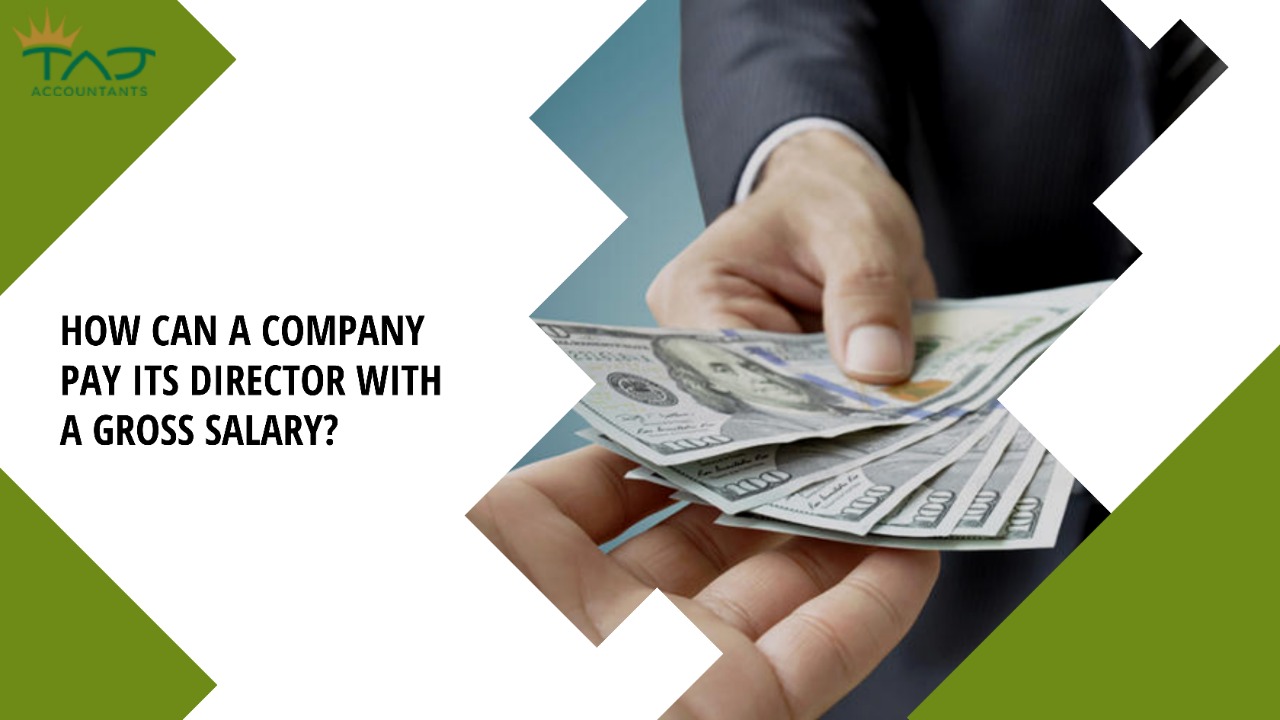How Can A Company Pay Its Director With A Gross Salary ?
Find out how you can pay yourself a salary as a director through your limited company.
As a self-employed individual, starting a limited company is often a sensible choice for self-employed workers, it will give you a lot of freedom that you require and it will also give you chance to pay yourself an amount of salary as a director from your company.
One of the main benefits of working through a limited company is that you can take the perk of tax planning measures that are not available through other business structures (such as umbrella companies).
National Insurance rates and thresholds, dividend rates and thresholds, and finally, helping you decide a tax optimal directors salary and dividends in the '21-22 tax year. This blog aims to help you do some tax planning as well as how you can provide yourself a salary through your company.
How do you do that?
You can sort out how your limited company pays you. Generally, the most tax-efficient way you can do this is by taking a combination of a low salary and dividends from your limited company. You will get paid the amount of salary as a director just in the same way as a regular employee.
In the process, make sure that you meet all your reporting and tax filing responsibilities for running your payroll under HMRC’s Real-Time Information (RTI) rules, otherwise, you may incur fines and penalties. Also, make sure to follow HMRC’s rules on issuing dividends.
Your taxation process can easily be taken care of by our expert team of accountants or you can contact your trusted Accountants in London for this purpose.
85k below VAT Regis 600+ VAT 85+ turnover the amount will vary base on the turnover and your transactions.
Salary Base: Employees Vs Directors
A company is consists of two kinds of workforces: Employees and Directors. The directors are the main agents and the strategic decision-makers of a company, they are appointed at the discretion of shareholders, and they ensure that a company fulfills its statutory obligations. The directors also assume an active role in an organization’s trade.
In addition to this, most directors also assume an active role in an organization’s trade. The job roles have clear segregation as per their nature, but the segregation isn’t material enough for these roles to be identified separately in most companies.
However, it is vital to understand the difference for two important reasons. The directors are treated as officeholders who aren’t covered under the national minimum wage, but their earnings as a director are covered due to the work they do for the company. Secondly, tax and NI implications on the earnings depend on the roles from which the earnings have been generated.
The Corporate Tax Bill 2021
The corporation tax bill is charged at 19%, but as per the new budget announced on March 3, 2021, the chancellor has pronounced a rise in the headline rate to 25% from April 2023.
The rate for companies with profits below £50,000 will be 19%, and it will increase proportionately with the profits till the amount of £250,000, at and above which the rate will be 25%. A company that is making a profit of £250,000 will pay £47,500 at 19% of CT in the year 2020-21.
Why Would I Pay Myself as a Director?
There are two main reasons to take a salary from your limited company:
- It’s counted as an allowable business expense, which means it lowers the amount of Corporation Tax your company pays
- If the salary is above the Lower Earnings Limit (£6,240 in the 2020/21 and 2021/22 tax years – view current tax rates) you accrue qualifying years towards your state pension.
How should I be paid?
It's important to remember that, unlike a sole trader, a limited company is a separate legal entity from yourself. With a sole trader, the profit is your income, but the same does not apply to the company. You can make money from the company, but it has to be done through an appropriate method.
There are two main ways a director can be paid:
- PAYE (Pay as You Earn)
- Dividends
When and how much is paid is largely down to the business itself, but there can be tax advantages of using one more than the other (we recommend speaking to an accountant about this).
Salary Limit
It may seem a bit complicated at first, but the more times you go through the process, the easier it becomes. Remember - dividends have their tax advantages and disadvantages; it's always worth checking with your accountant before making decisions.
As a UK taxpayer, each year you’ll have a Personal Allowance – any income you receive up to the Personal Allowance is free from Income Tax. In the 2020/21 tax year this threshold is £12,500. In the 2021/22 tax year, the threshold increases to £12,570.
Final Thoughts
To put it simply, all the income resulting from services being provided as a NED is deemed by law to be subjected to PAYE tax and NI, even if received through an intermediary, i.e. a limited company. Nevertheless, if a non-executive director provides services that are different from directorship duties, as a freelance expert, a gross salary can be possible.
How can Taj Accountants help you?
If you need any kind of help in your way to adopting any financial measures for your small business in the UK, feel free to reach us. Taj Accountants can help and advise you to manage your personal and corporate taxation affairs, making sure you are optimizing your potential benefits in your interest. We can also provide you services for a range of property portfolios including buy-to-let landlords, property investors, developers, housing associations. We make sure you file your taxes with utmost accuracy while following the HMRC standard. You can get both our online and offline services based on your preference.
DISCLAIMER: The purpose of the blog is to provide information and insight regarding the situation. The readers must contact experts before making any decisions based on the information. We highly appreciate you contacting Taj Accountants for further assistance.


